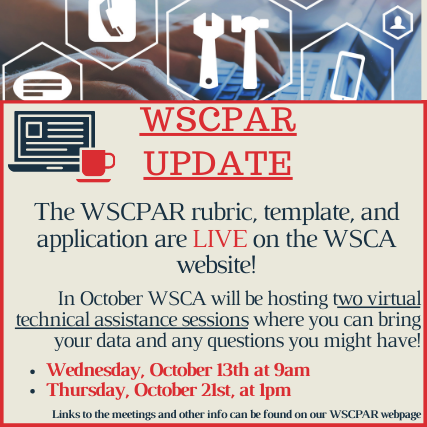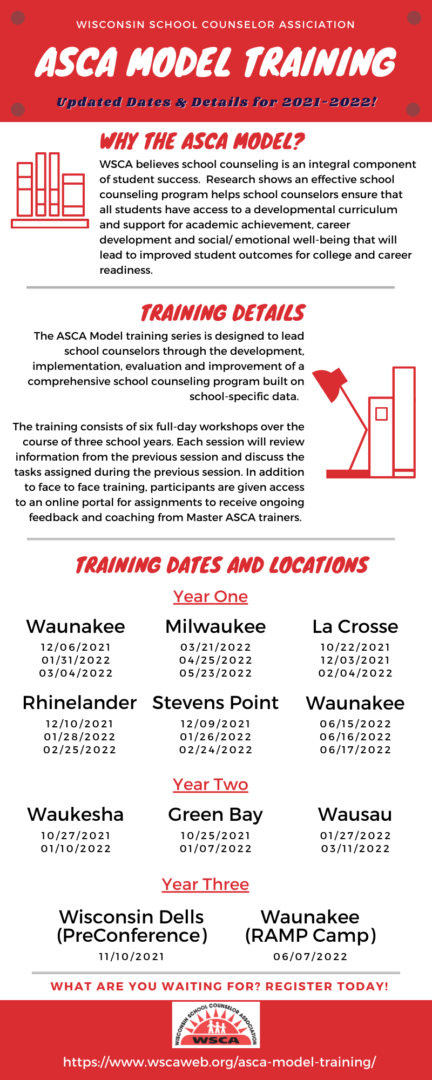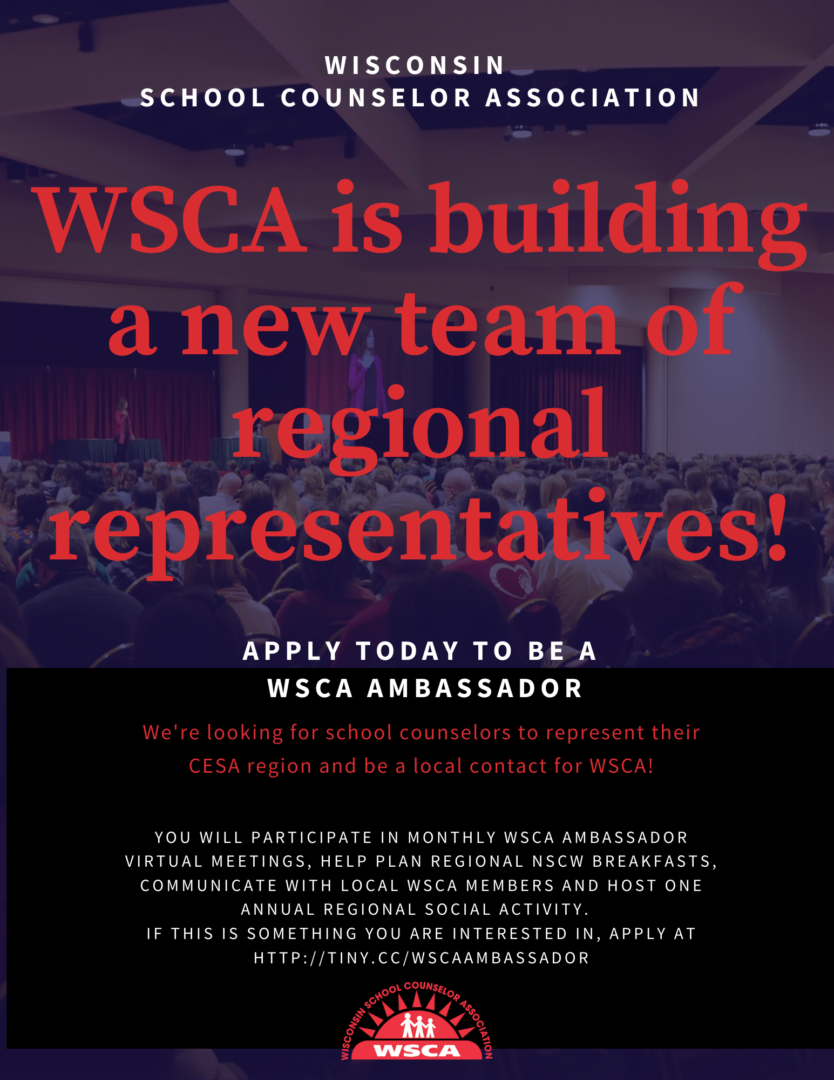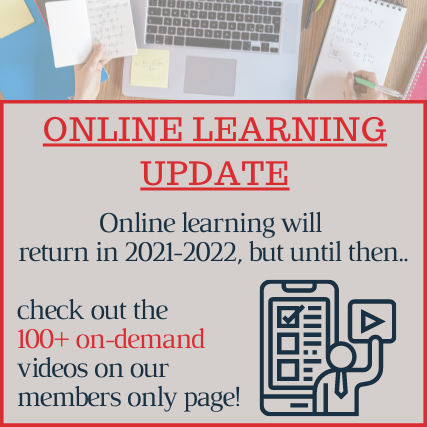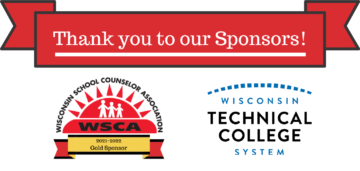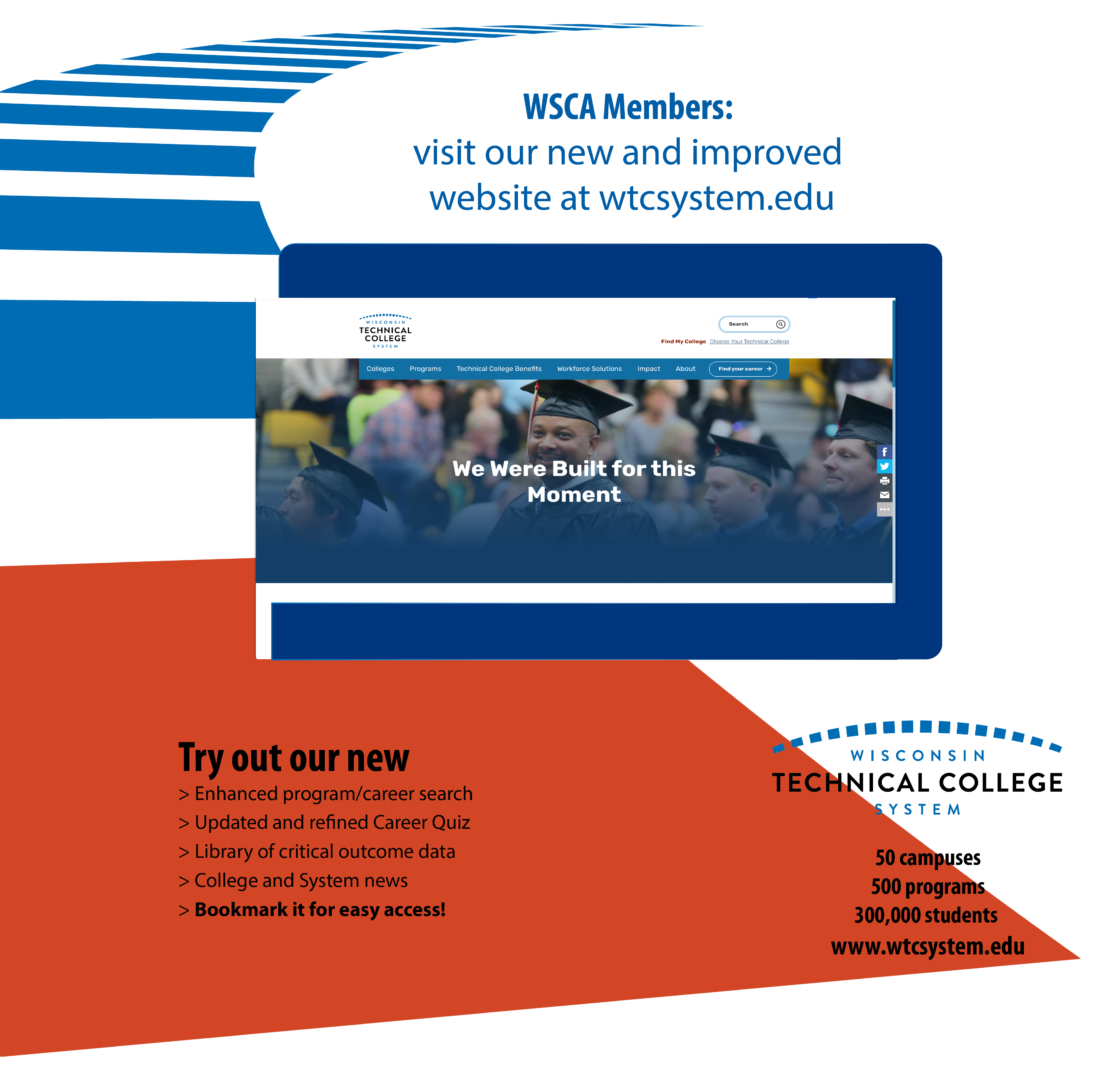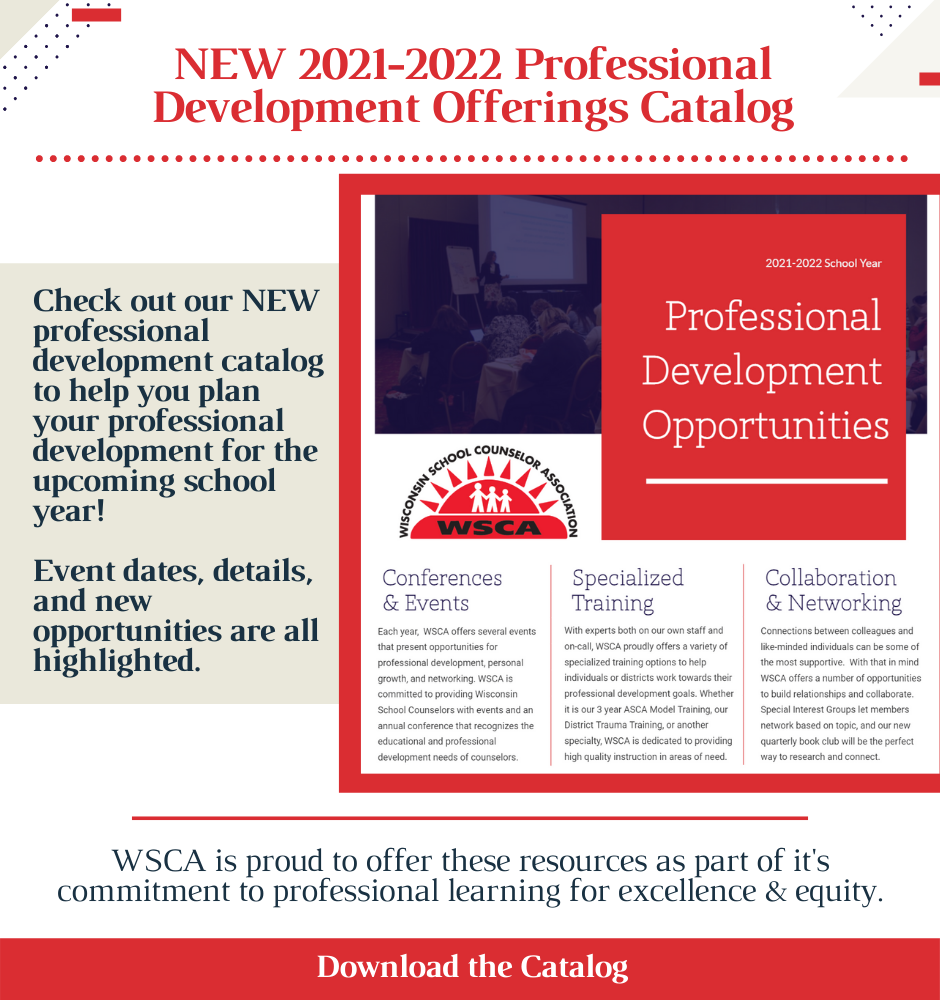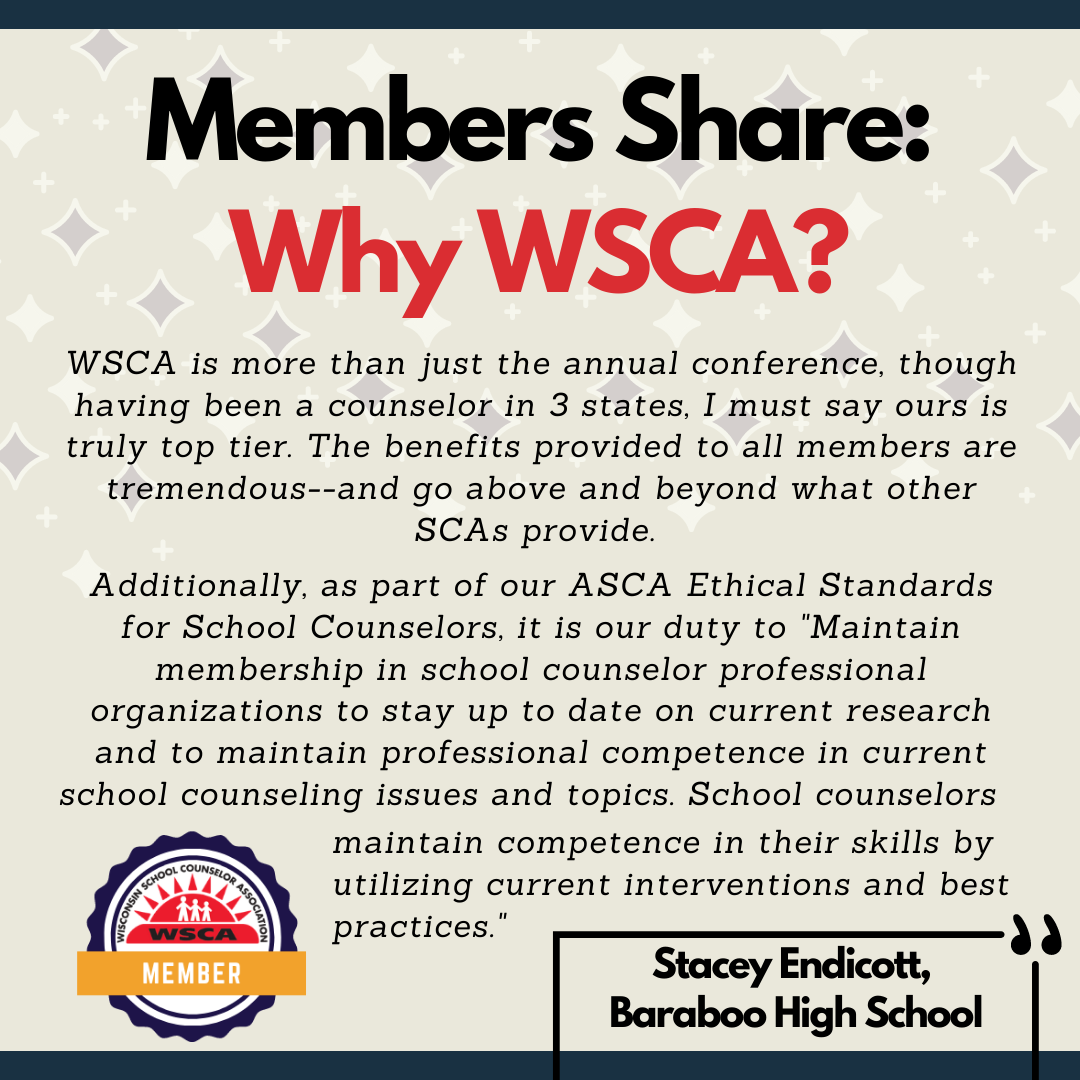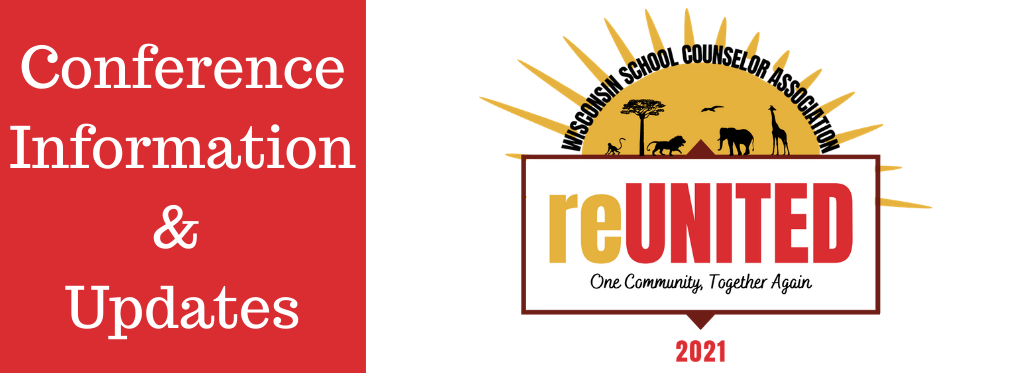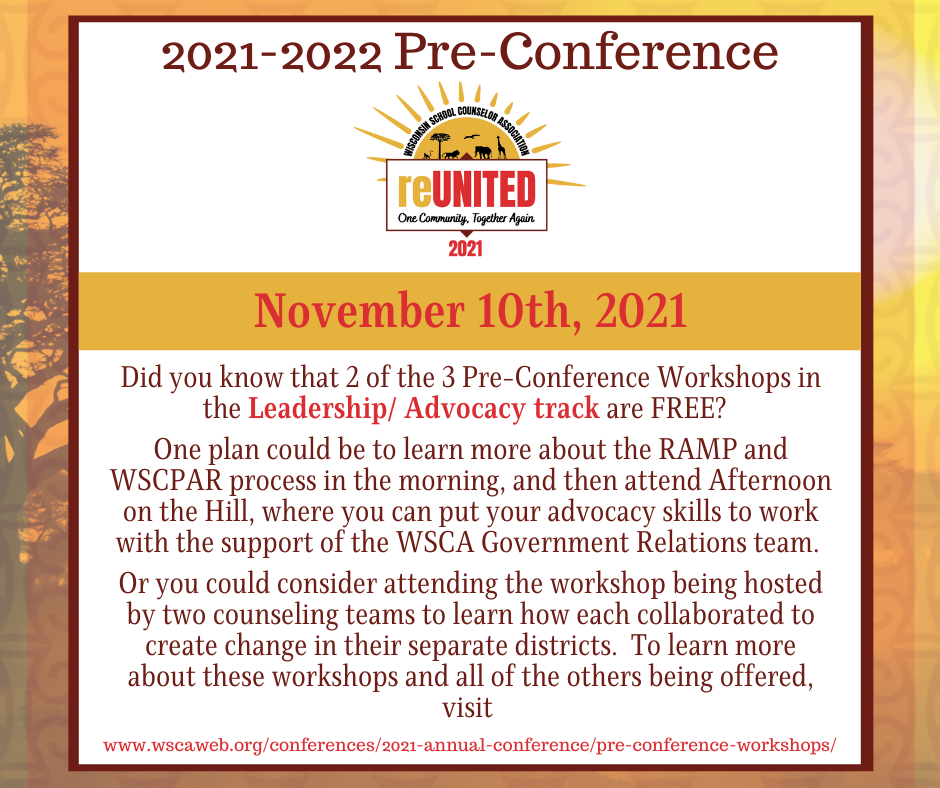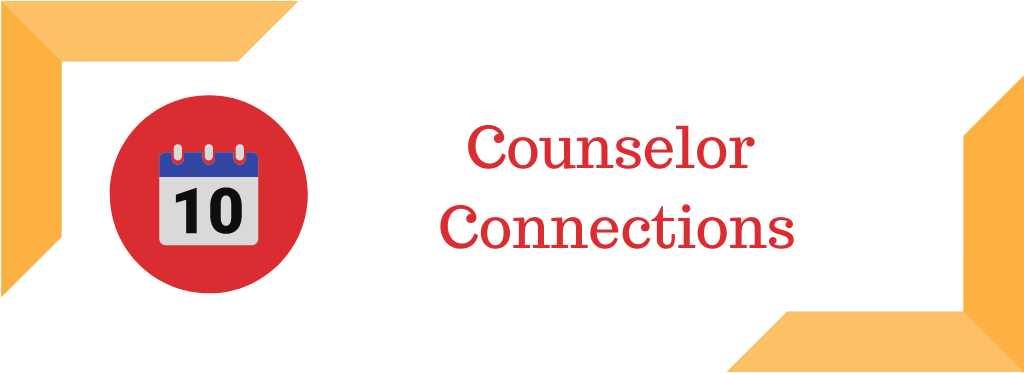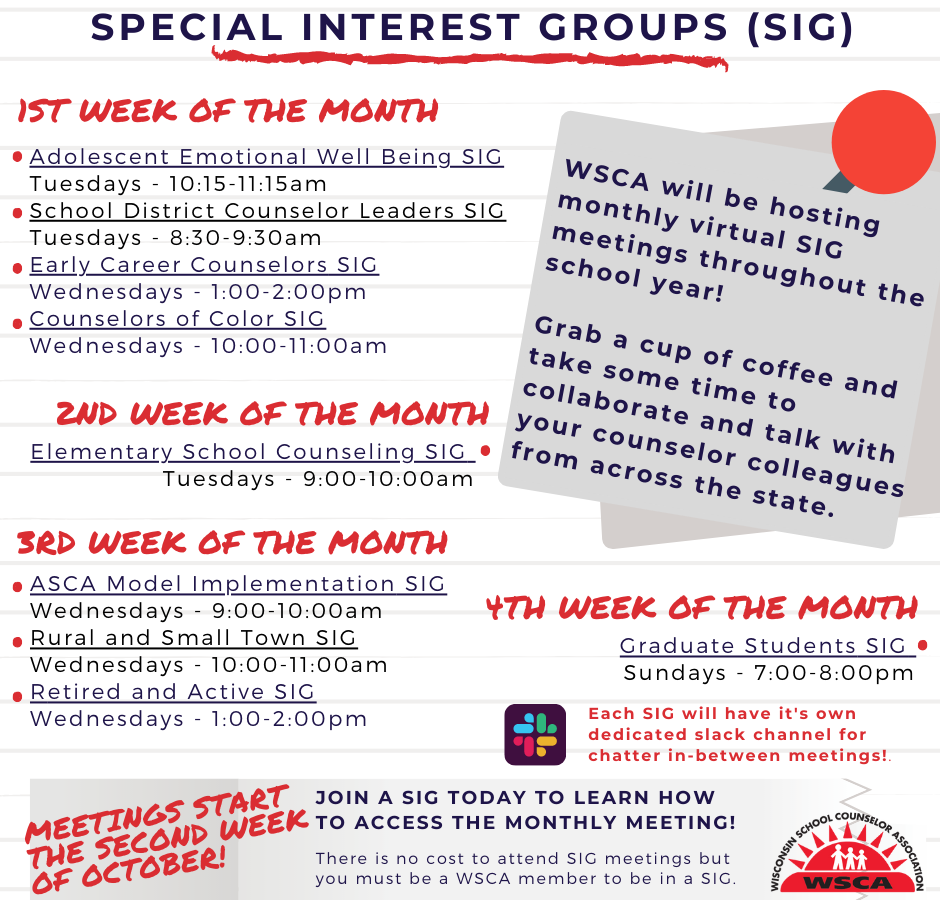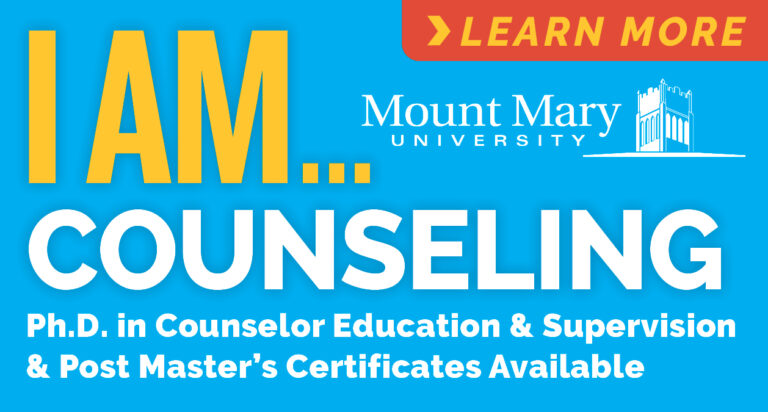October 2021

A Message from the WSCA Executive Director

Dear WSCA Members,
I attended a UW Badger home game a few weeks ago and saw the following slogan by Under Armour on the big board. It really resonated with me and I have continued to reflect on it almost daily since then.
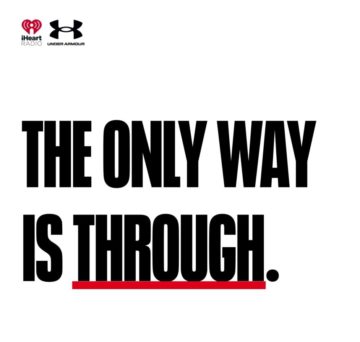 Under Armour rolled out the “THE ONLY WAY IS THROUGH” campaign in early 2020 with the tagline, “You’re More Than Your Successes. You’re More Than Your Failures. You Are The Work.” At the time they were developing this new slogan they had no idea the world would be going through a pandemic and cultural strife.
Under Armour rolled out the “THE ONLY WAY IS THROUGH” campaign in early 2020 with the tagline, “You’re More Than Your Successes. You’re More Than Your Failures. You Are The Work.” At the time they were developing this new slogan they had no idea the world would be going through a pandemic and cultural strife.
Brian Boring, VP of Global Brand Creative for Under Armour said the following when announcing the campaign, “This isn’t a clever advertising slogan. It’s a statement that encompasses what every person striving to achieve a goal understands in his or her heart. We know there are no shortcuts and no magical solution. It’s thinking smarter, working harder, being better than yesterday—through the highest highs and the lowest lows—and being the best version of yourself. That is the ethos of The Only Way Is Through, and it’s why we’re so excited to bring this message—and these stories—to the world.”
I often catch myself saying that educators in general are just “done”. We are beyond exhaustion and burn out, so what do we do now? For me personally, the only way is through has been guiding my work the past few weeks and I believe it will continue for the rest of this school year. I need to decide how I am going to personally get through this with so much out of our control right now.
Kelley O’Hara, US Soccer Player is highlighted in the Under Armour campaign and speaks to much of what we as school counselors teach our students, “Disappointment, failure, and rejection, while it stings in the moment, develops character and the resilience to move forward, no matter what. Making your successes that much sweeter. Just like anything you’ve ever faced and anything you will face moving forward, there’s only one way to overcome it – you have to fight through it. The only way is through.”
Join us as your professional network so we can collectively support each other because the only way is through.
~Stacy
A Message from the WSCA Board of Directors

Becoming a Member of the WSCA Board of Directors
WSCA has a long history of providing service for school counselors across the state. And there is an impressive (and lengthy) list of professionals who have provided excellent leadership throughout those years by serving on the WSCA Board. And as new school counselors join the profession, it’s exciting to look forward to the leadership of those who join the board in the future!
Any member of WSCA who holds a license in School Counseling from the Wisconsin Department of Public Instruction, and has been a practicing school counselor for at least 3 years, meets the qualifications to be considered for a seat on the WSCA Board of Directors. If you meet this criteria we certainly encourage you to consider applying for a seat on the Board. The application process is always open in the Fall, typically closing in early December.
Those who have been part of WSCA for a while know that we moved from an “open” ballot, where anyone could be nominated and appear on the ballot, to our current “slate” ballot, where candidates whose applications have passed a screening process appear on the ballot. There were several reasons WSCA moved to the slated ballot. Here are the primary reasons:
- It was very common for WSCA to hear from members that they did not know any of the candidates on the ballot, and therefore the voting process felt very random for them. This caused many members not to vote at all.
- WSCA adopted a specific governance approach called Policy Governance. This style of governing is very different from what most of our members have ever experienced. So, in fairness to anyone seeking a seat on the board, as well as ensuring the integrity of the function of the WSCA Board, it became necessary to establish a screening process for anyone interested in being considered as a candidate. The WSCA Board has a Nominations and Elections Committee that reviews the submitted applications, ranks the potential candidates using a scoring rubric (more on that below), and makes a recommendation to the entire board for the top 3 candidates to be considered for the voting slate. After the Board approves the slate, it is presented to the membership at large for a vote of approval of the slate.
- Using the slate ballot approach gives anyone in the association a fair opportunity to run for the board. Many association boards are criticized for appearing to be a “clique”, where the only way to get onto a board is if you know the right people. WSCA has eliminated that dynamic by creating a uniform process where all candidates complete the same application which is scored by the same rubric. This eliminates the possibility that a less qualified candidate would be selected to the board simply because they have connections to existing board members.
“And what are these qualifications that the WSCA Board is seeking for future board members,” you may be asking? Here are the primary attributes of leadership that appear on the rubric for scoring the candidate applications:
- Communication Skills
- One of the primary roles of the WSCA Board is to be a communication link between the members and the association, making strong communication skills a necessity.
- Collaboration Skills
- The WSCA Board makes decisions as a group, making collaboration critical.
- Perspective Taking
- The Board recognizes that we are stronger when our members are able to understand multiple perspectives around issues.
- Flexibility
- In order for the WSCA Board to make group decisions, it is important that the board members approach decisions from a flexible position.
- Thoughtful/Insightful
- Since WSCA serves school counselors at all grade levels which have different needs, and all districts (rural to urban) which have different needs, WSCA Board members must be prepared to listen and learn in order to make impactful decisions.
- Ability to Have Tough Conversations
- Not all decisions are easy, and the WSCA Board works hard to create a respectful environment so ideas can be challenged in a healthy way.
- Professionalism
- The WSCA Board consists of 9 Directors who work for the entire membership. The WSCA Board has an expectation that board members will represent the profession at the highest level.
- Willingness to Learn
- Taking a humble approach to leadership, with an understanding that there is always more to learn, especially about the professional experiences of WSCA members.
- Creative/Innovative
- WSCA is an excellent school counseling association because its leaders have been courageous enough to act on creative and innovative ideas.
- Integrity/Honesty
- WSCA is a proud association built on trustworthy leadership.
- Accountability
- WSCA Board members know that they are accountable to the association members, and embrace that accountability.
If you are considering applying for candidacy to the WSCA Board of Directors, we hope that the information above gives you great insight into what it takes to be a great WSCA Board member. There will also be a sectional at the WSCA Conference specifically for members considering applying. There will be discussion about what Policy Governance is, as well as discussion around examples of leadership experiences that could develop the skills above.
~Steve Schneider

Feature Article – Moving From Surviving to Thriving
Moving From Surviving to Thriving
Lauren Schultz
Menasha High School
Welcome back to another school year, counselors! I cannot think of a better topic to kick off the new school year than resilience. Let’s be honest, the theme for last school year was survival. With all the changes and challenges from the COVID pandemic, the school year was a grind. We were operating on autopilot. I cannot tell you how many times I heard from educators and families alike, “let’s just get through this year.” Although we are entering a new year with some lingering practices keeping us from being “normal,” this is our chance for a fresh start. This is 2021-2022: the year of bouncing back.
This year will be a litmus test for our students. When looking through a lens of resiliency, I think we will quickly be able to see which of our students are bouncing back and who is still struggling. We will see it in our data. We will see it on our student’s faces. We will see it in emails and phone calls from families. I know many of us feel the pressure to get our kids succeeding in school again, and to close the glaring achievement gaps. But if we don’t close the resiliency gaps, our students will continue to flounder.
The number one way to build resilience in children is through connection. Research shows that all it takes is at least one trusted adult to lower childrens risk of suicide, lower their engagement in risky behavior, and increase their overall sense of well-being. Let’s not forget how important this is to our equity work. For black and low-income students, these relationships are even more critical. According to the National Promises Study, Black students are almost twice as likely to say they wish they had more helpful adults in their lives than white students, and low-income students are 10 percent less likely than their peers to have caring adults in their lives.
It is critical that we also use this same approach on ourselves. Whether it is for our fellow educators, our administrators, or looking internally, we must prioritize resilience-building. For some of us, our summers were rejuvenating and brought us back to school energized for the year ahead. For others, we are still trying to catch our breaths and question if we can keep going. It is important we acknowledge that each of us are functioning at different levels and with different coping mechanisms. We must recognize our own capacities and the capacities of others. Personally, I am eager to get back to my regularly scheduled programming. I want to pick up where I left off two years ago, fill my calendar with events, and create new activities for my students. But realistically I know my staff, my students, and my families are not the same as they were two years ago. They may not be ready. We cannot pretend like the past months did not happen. We have to embrace them and keep moving forward. So maybe we don’t start that new initiative this year, and maybe we postpone bigger programming. Let’s get back to the basics and do what school counselors do best: build relationships.
As we enter this new school year, I challenge you to keep this simple, yet powerful idea in mind. Our goals for the year don’t have to be lofty, creative, or new. But they do have the capability to move our children from surviving to thriving. I encourage you to think about how your program goals foster resilience and build relationships with those who need it most. Whether it is extra time in the hallway during passing periods, making more positive phone calls home, or reaching out to new staff members, your intentional acts of resilience will never go unnoticed. In the end, as John C. Maxwell stated, “Children don’t care what you know until they know that you care.”
You Spoke, We Listened
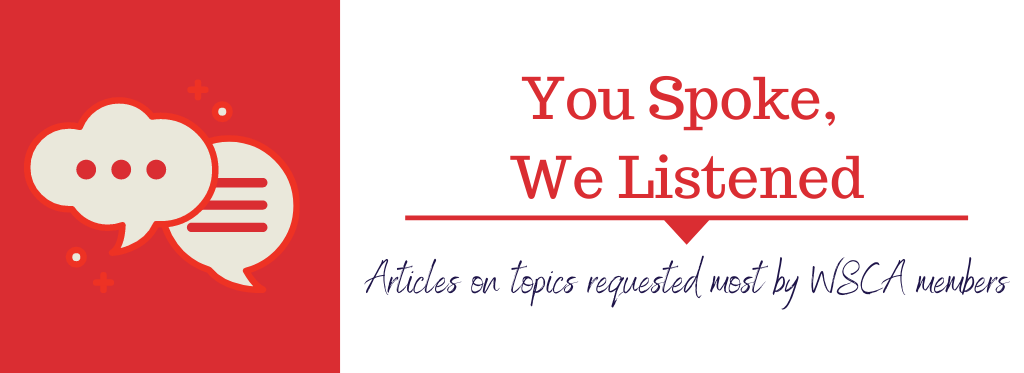
![]()
ASCA Ethical Standards for School Counselors Review Input Request
WSCA is part of a group of school counselors across the United States reviewing and updating the ASCA Ethical Standards for School Counselors. Our state is specifically reviewing section B. RESPONSIBILITIES TO PARENTS/GUARDIANS, SCHOOL AND SELF.
We welcome our members’ input on section B. Note that ethical standards are intended to be stated more broadly and globally rather than with specifics. ASCA has position statements that go more deeply into interpretations and best practices, you can find the position statements here: https://www.schoolcounselor.org/Standards-Positions/Position-Statements/ASCA-Position-Statements.
Share your input using this form https://forms.gle/XbRtFepsg8hYmQnq7.
WSCA will be accepting member input through the WSCA conference.
![]()
Resources from NCTSN
The National Children’s Traumatic Stress Network (NCTSN) has countless, free resources available to help schools support children and families impacted by trauma. The NCTSN published a tip sheet that offers practical guidance to support children that have experienced a traumatic separation or traumatic grief as it relates to the COVID-19 pandemic.
Another resource shared by the NCTSN is the evidence-based Support for Students Exposed to Trauma (SSET) program. SSET is a school-based group intervention for students who have been exposed to traumatic events and are suffering from symptoms of post-traumatic stress disorder (PTSD).
Designed specifically for use by teachers and school counselors, SSET is a non-clinical adaptation of the Cognitive Behavioral Intervention for Trauma in Schools (CBITS) Program. SSET teaches many of the same cognitive and behavioral skills as CBITS, such as social problem solving, psychoeducation, and relaxation. School counselors can access the FREE online training and curriculum here http://ssetprogram.org/.
Cyber Bullying Research Center
School counselors have seen the continued upward trend in cyber bullying and risky online behaviors in adolescents. It is imperative that students learn how to manage and cope with these experiences. Wisconsin’s very own UW Eau Claire professor, Dr. Justin W. Patchin is the co-founder of the Cyberbullying Research Center.
The Cyberbullying Research Center is dedicated to providing up-to-date information about the nature, extent, causes, and consequences of cyberbullying among adolescents. Cyberbullying can be defined as “Willful and repeated harm inflicted through the use of computers, cell phones, and other electronic devices.” It is also known as “cyber bullying,” “electronic bullying,” “e-bullying,” “sms bullying,” “mobile bullying,” “online bullying,” “digital bullying,” or “Internet bullying.” The Center also explores other adolescent behaviors online including sexting, social media misuse, digital dating abuse, and issues related to digital citizenship, resilience, empathy, school climate, and more.
This website serves as a clearinghouse of information concerning the ways adolescents use and misuse technology. It is intended to be a resource for parents, educators, mental health professionals, law enforcement officers, counselors, and others who work with youth (as well as for youth themselves!). Here you will find facts, figures, and detailed stories from those who have been directly impacted by online aggression. In addition, the site includes numerous resources to help you prevent and respond to cyberbullying incidents. All of the information on this site is informed by over fifteen years of research.”
Check out all of the free resources at https://cyberbullying.org/.
![]()
Youth Apprenticeship Programs Give Students a Head Start
It’s no secret Wisconsin companies are having trouble finding enough employees to meet their needs. Youth Apprenticeship programs are a smart choice to help high school students find their passion and give them a head start on a career.
While Wisconsin’s Youth Apprenticeship program has been around for nearly three decades, the Department of Workforce Development (DWD) launched the Youth Apprenticeship Modernization Project a couple years ago. The modernization project will increase the rigor and relevance of the 11 career clusters and associated 55+ pathways, to ensure the Wisconsin Youth Apprenticeship program adequately meets the current and future needs of Wisconsin industries.
“Youth Apprenticeship offers our business a critical pipeline of engaged, mature, and educated students who want to pursue a career in our industry,” said Brandon Wick, SHRM-SCP, Director of Human Resources & Safety for Metropolis Resort & Conference Center in Eau Claire. “Our youth apprentices have lower turnover, higher performance scores and stay employed with us longer than traditional employees of the same demographics. The program allows our company to be involved at our own pace, and our efforts bring an excellent return.”
The specific objectives of the Youth Apprenticeship Modernization Project include maximizing dual enrollment credits, increasing the number of certificates a student may earn, expanding into emerging technologies and ensuring seamless alignment with the registered apprenticeship program. All of this helps students and equals increased access to qualified talent for Wisconsin employers.
The Department of Workforce Development oversees the youth apprenticeship program. “Enrolling in an apprenticeship allows an individual to simultaneously learn in-demand, transferable skills from an employer while earning family sustaining wages,” stated Joshua Johnson, DWD’s Bureau of Apprenticeship Director. “It is among my top goals to make apprenticeship in Wisconsin more visible, accessible and successful than ever before.”
Pam Gaurkee, RN BSN, is the director of clinical operations for Capri Senior Communities in Waukesha.
“As a health care professional, I have always believed in paying it forward. Having the opportunity to work with the Youth Apprenticeship Program we have the privilege of working with high school students who have an interest in health care as a career.”
Youth Apprenticeship programs are a natural starting block for students to venture into apprenticeship after high school. Johnson is excited to work on strengthening the Bureau of Apprenticeship Standards current programs and partnerships, as well as expanding the reach and appeal of apprenticeship. He looks forward to growing and updating its footprint from high school-based Youth Apprenticeship to new fields in Registered Apprenticeship, such as organic farming, financial services and healthcare.
Gaurkee believes youth apprenticeship program helps the students as much as those working with them. “This partnership has benefited students giving them the ability to explore health care as a career and decide if this is the path they want to follow. The partnership also benefits us as health care professionals – when we are with students we stop and think about the why behind the how and share what we have learned throughout our career.”
For more information on how to get involved with the youth apprenticeship program, visit DWD’s website.
Wisconsin’s 16 technical colleges serve every community in Wisconsin, providing learning opportunities close to home. The Wisconsin Technical College System offers more than 500 programs, awarding two-year associate degrees, one- and two-year technical diplomas, and short-term technical diplomas and certificates. Visit www.WTCSystem.edu to explore all the benefits Wisconsin’s technical colleges have to offer.
Legislative Updates
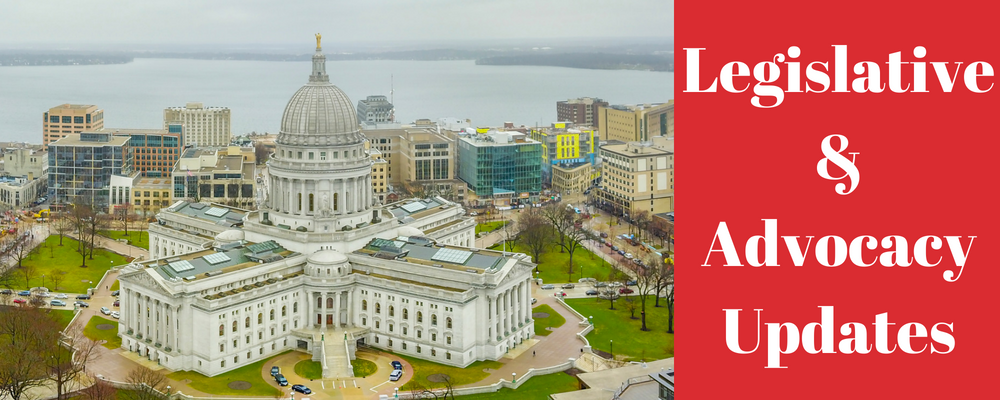
Proposed Legislation Related to K-12
The Wisconsin Assembly and Senate have been busy the past few weeks with a flurry of committee meetings and proposed legislation related to K-12.
We appreciate the Wisconsin Association of School Boards sharing a detailed summary of the bills which you can find here https://wasb.org/state-legislature-votes-on-a-plethora-of-k-12-legislation/.
Not all of these bills have been passed by both houses, please refer to the WASB blog above for more specific information. WSCA anticipates that Governor Evers will be vetoing some of these bills but does not have confirmation on his final decisions at this time. Details on how to find your elected officials can be found on the WSCA Government Relations webpage https://www.wscaweb.org/advocacy/government-relations-committee/,
Bills that may pertain to school counseling:
- Senate Bill 463 – This bill requires each school board to post learning materials and educational activities used in pupil instruction and any procedure or policy that applies approval of such materials or activities online. Under the bill, a school board must update the list of learning materials and educational activities at least twice each school year (before the start of the school term and before January 15) and must notify parents and guardians each time the list is updated.
- Assembly Bill 220 – This bill specifies that the youth apprenticeship program must be included in the list of educational options that a school provides to parents and guardians.
- Senate Bill 398 This bill adds September 11 to the list of special observance days for schools as a day to remember the attacks that occurred in 2001, and to honor law enforcement officers and firefighters.
- Assembly Bill 411 – Under the bill, a school board is prohibited from allowing a teacher to teach pupils race or sex stereotyping and is prohibited from requiring an employee to attend a training that promotes race or sex stereotyping.
- Assembly Bill 435 – This bill requires the state superintendent of public instruction to incorporate cursive writing into the model academic standards for English language arts (something that has already been done) and requires all school boards, independent charter schools, and voucher schools to include cursive writing in its respective curriculum for the elementary grades.
- Assembly Bill 561 – This bill requires a school board annually to report to the DPI the number of pupils who attended a credit recovery course during the school year and, for each pupil, the pupil’s grade level and the subject of the recovery course.
- Assembly Bill 563 – This bill requires 0.5 credit of civics education for high school graduation, requires the DPI to promulgate administrative rules to develop a model civics curriculum and instructional materials that must address certain topics, and requires legislative approval of said model curriculum.
- Assembly Bill 564 – The bill requires reports concerning state agency expenditure of federal coronavirus relief funds and requires allocating $100 million federal American Rescue Plan Act funding for grants to school districts, independent charter schools, and private schools for mental health programs.
2021-2022 Professional Development - Call for Leadership Academy, NEW Professional Development Catalog
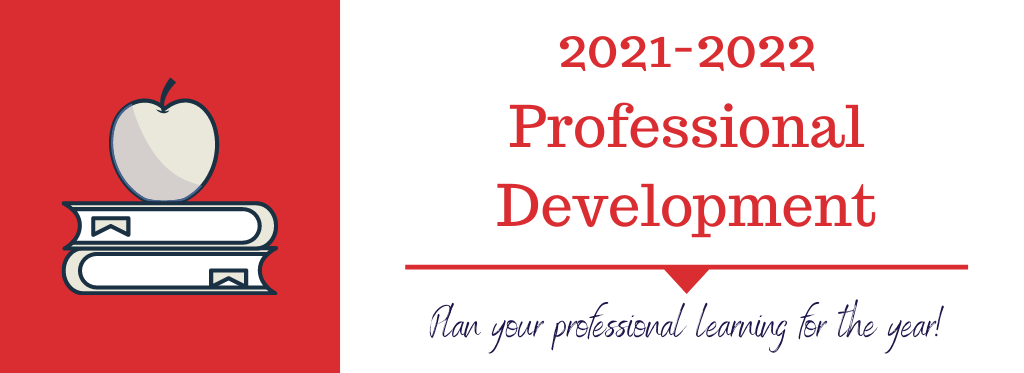
Why You Should Apply for WSCA’s Leadership Academy
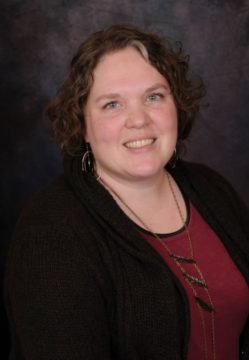 Hello Wisconsin School Counselors! My name is Amanda Kauth and I am a school counselor in River Falls, WI. I’d like to share an opportunity with you — WSCA Leadership Academy. WSCA is now seeking participants for Cohort #4 of Leadership Academy!
Hello Wisconsin School Counselors! My name is Amanda Kauth and I am a school counselor in River Falls, WI. I’d like to share an opportunity with you — WSCA Leadership Academy. WSCA is now seeking participants for Cohort #4 of Leadership Academy!
If you are interested in an opportunity to reflect on your leadership skills and how you can grow as a leader in the field of school counseling, this is an opportunity for you! WSCA Leadership Academy provides practicing school counselors with insight into the inner-workings of the WSCA organization as well as ways to become more involved in leadership roles in your work as a school counselor.
I was a participant in Leadership Academy Cohort #2 and have grown in my confidence as a leader. Since my involvement in Leadership Academy, I am more confident leading meetings in my school, I became an adjunct professor at UW-River Falls, and am now the Director of Operations for WSCA Leadership Academy. You can decide just how involved you want to become through your experience.
I encourage you to consider applying for Leadership Academy and joining an amazing group of school counselors across the state of Wisconsin. Be on the lookout for a sectional at the WSCA Conference to learn more information! Applications are due right after the conference. Here’s a link: https://www.wscaweb.org/about-wsca/get-involved/leadership-academy-2021-2022/
Members Corner - Members Share: Why WSCA?






